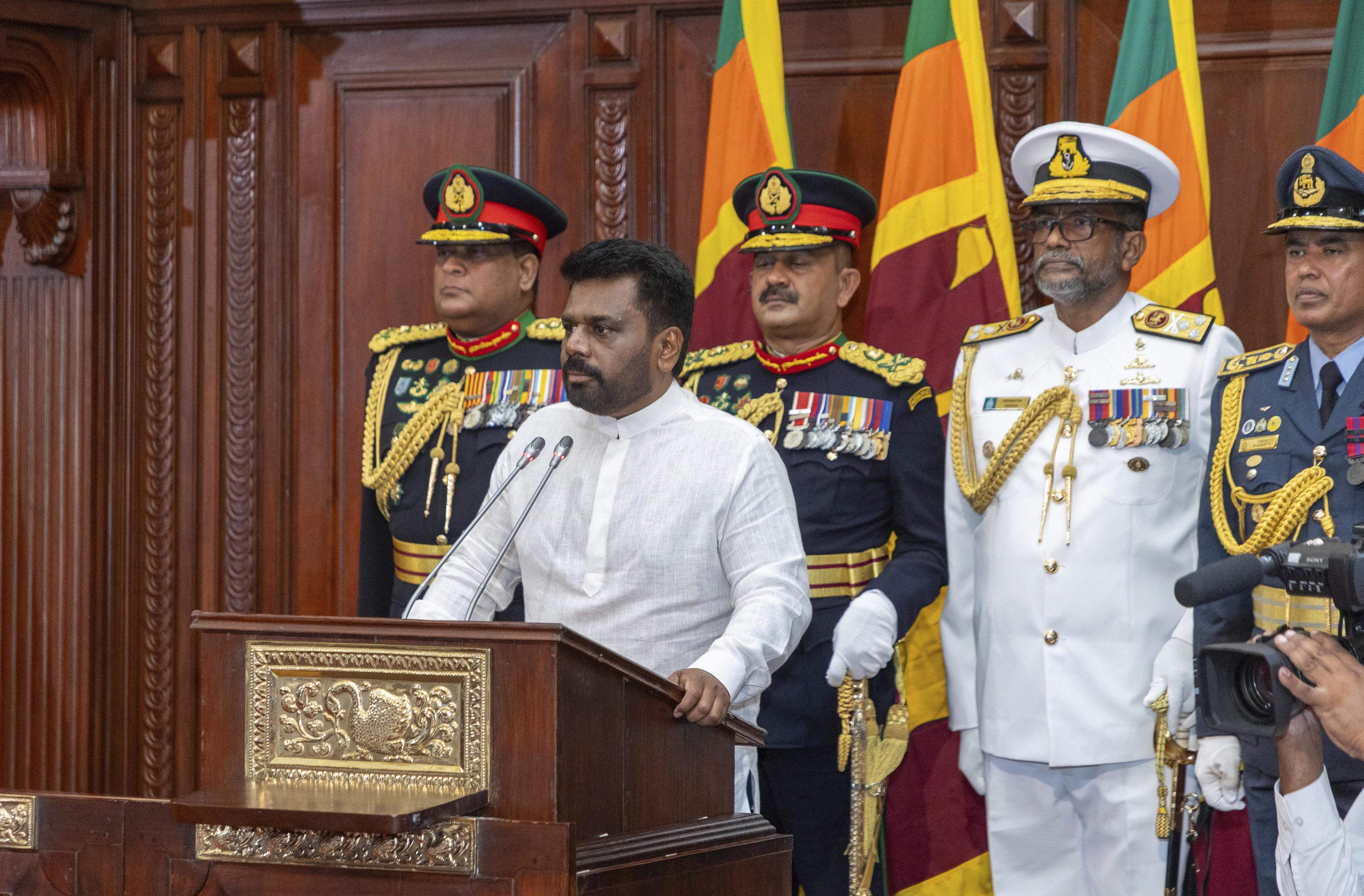After the closure of polling stations, an eight-hour nighttime curfew was imposed. Thousands of police officers were deployed to reinforce security throughout the country. Even the sale of alcohol was prohibited. In Sri Lanka, shaken by its worst economic crisis, violence, and two years of political turmoil, everyone wanted smooth elections closure. There was a lot at stake in this tourist island nation anchored to the south of the Indian subcontinent.
The security measures, and above all the desire of an angry population to leave behind the history of corrupt ruling dynasties, unpayable debts, and obedience to foreign financial referees forcing citizens to tighten their belts more and more, led to the most peaceful elections in Sri Lanka's history being held on Saturday. This was defined by the electoral commission, explaining that around 76% of the 17.1 million eligible voters had cast their votes to choose the new president from a record 38 candidates running.
The new president will be Anura Kumara Dissanayake (55 years old), a Marxist politician, leader of a social democratic coalition, who has captivated voters with an ambitious campaign against corrupt officials and in defense of democratic regeneration.
In a closer count than expected, Dissanayake received 42.36% of the vote. He did not reach the necessary majority (above 50%) in the first round, so a second phase had to be held where the two most voted candidates faced off. In this final round, all votes cast by voters were taken into account, who had to choose three preferred options on the ballots. On Sunday night (local time), the electoral commission announced Dissanayake's victory.
One of the winner's major promises has been to renegotiate the terms of the $2.9 billion rescue package from the International Monetary Fund (IMF). This came after the economic collapse of 2022, when the government of the then leader Ranil Wickremesinghe, who had just taken office, said it could not pay the enormous external debt. The international financial organization pressured and forced the Executive to follow harsh and unpopular austerity policies, such as tax increases, leaving millions of families struggling to make ends meet.
Wickremesinghe (75 years old), although boasting of having achieved some stability in Sri Lanka - inflation has decreased and the World Bank predicts the economy will grow by 2.2% in 2024, after two consecutive years of negative growth - has not convinced many voters who believe their country has ended up being governed by the IMF.
The outgoing president, who had also served as prime minister up to six times representing the center-right UNP party, took the reins after massive protests that led to the downfall of the powerful Rajapaksa clan. The Parliament tasked Wickremesinghe with rescuing Siri Lanka from economic collapse and ending the unrest just a few days after former President Gotabaya Rajapaksa fled the country when protesters stormed the presidential palace.
The Rajapaksas, southern Buddhist landowners who at the height of their power had six family members holding the presidency and prime minister's office, as well as a dozen ministries, lost control after 20 years, when a severe famine loomed in this bankrupt nation where many of its 22 million inhabitants could barely afford one meal a day.
Neither the imposed curfews nor the military force managed to stop massive protests that ousted one of the most powerful political dynasties in South Asia, which enriched itself through commissions from millionaire contracts signed with China to build infrastructure. This left a huge external debt, which was already very high after the country resorted to foreign loans to recover after the end of the civil war in 2009. Under the Rajapaksa rule, repression against dissent and freedom of expression also increased.
Amid shortages of basic goods and power cuts, with inflation around 60%, Wickremesinghe, who has been accused of protecting the Rajapaksa family, turned to the IMF in 2023, accepting strict conditions (eliminating several subsidies and raising taxes) in exchange for an emergency loan.
Wickremesinghe has now lost an election - he was the third most voted candidate - seen as a referendum on the economic reforms promoted by the IMF and implemented by his government. The baton will now be taken by Dissanayaka, who has led the Janatha Vimukthi Peramuna since 2014, a Marxist-Leninist communist party born from a revolutionary movement that led two failed and bloody coup attempts in the 1970s and 1980s. "Our country needs a new political culture," said Dissanayaka on Saturday after casting his vote.
